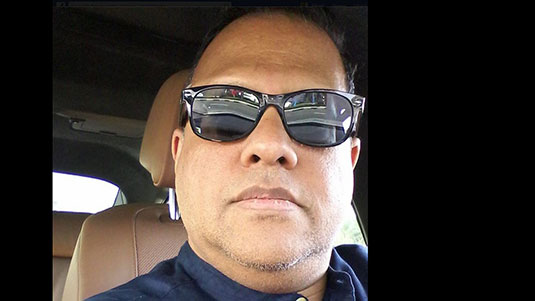By Hema Senanayake –
In this analysis, I use Pitipana Committee report. Also I use the Minute Paper of Monetary Board and Minute Paper of the relevant Tender Committee of Central Bank which have been attached to the said committee report. I use nothing else.
On February 27th of this year, Central Bank of Sri Lanka issued a certain amount of Treasury bonds in order to raise funds for the government. Many people, including opposition politicians, a good segment of economists and some analysts & dealers in the financial market alleged that the government has to incur heavy losses in terms of interest payments due to the acceptance of some bids submitted with disadvantageous price and yield rates. Such criticisms created a huge uproar in the country.
Especially, certain bids submitted by the company (Perpetual Treasuries) which is owned by the son-in-law ofthe Governor of the Central Bank of Sri Lanka (CBSL) were required to pay higher cost of interest than the prevailing rates. Accepting those bids by CBSL would cause the government to pay excessive interest up to 30 years which is the maturity time of those bonds.
Further, the government would have to incur additional losses in relation to the Treasury bills, notes and bonds issued from that day onwards, due to the reason that the interest rates went up after the acceptance of bids with higher yields on 27th February 2015.
Are all these allegations true? If true, is the Governor of CBSL responsible personally? In regard to these two questions my answer is “YES.” Perhaps you may wonder if I declare that I am going to submit undeniable evidences from the Pitipana Committee report itself in support of my above conclusion even though you may rightfully think that the Pitipana Committee was appointed as a cover up; the cover up was very clear from the three mandated terms of references listed for the Committee by the appointing authority.
In regard to this scandal the main technical question was about whether the CBSL artificially increased the rate of interest by accepting bids with higher yields and discounted prices. If CBSL did so, did Arjuna Mahendran as the Governor of CBSL had instructed the CBSL staff to do so? Let us investigate on these two points.
It is the Monetary Board which takes policy decisions as to the increase or decrease of interest rates. CBSL is administered under the Monetary Board. Accordingly, CBSL staff must act in line with the decisions made by the Monetary Board.
Just four days prior to the questionable bond issue, to be exact on February 23rd the Monetary Board met. During that meeting, Director of Economic Research Department of CBSL, namely Mrs. S. Gunaratne made a presentation to the Board members. Pitipana committee has not attached a copy of her presentation to the report. But it was clear from the Minute Paper of the Monetary Board that she had submitted to cut in policy rates further. If she did not suggest it, the Monetary Policy Committee has had recommended to cut in interest rates at that meeting. However, this recommendation was not accepted by the Monetary Board; instead the Board decided to consider that proposal in the next month’s meeting and decided to maintain the policy interest rates at current level until the next month’s meeting. These decisions made by Monetary Board have been documented in the Minute Paper which has been attached to the Pitipana Committee report. Hence there is no argument about those decisions.
Also, from the Minute Paper of the Monetary Board, it was very clear that the Board had not observed any artificial depression of the rates of interest or any technical error in the prevailing rates by February 2015. Further, the Monetary Board did not decide that CBSL should go back to the higher rates of interest existed prior to September 2014. There is no argument about these points as there were no such decisions mentioned in the Minute Paper. Read the next point carefully.
However, the Tender Committee of CBSL which handled the said bond issue did not work according to the Monetary Board decisions. Due to whatever reason the Tender Committee decided to accept bids in accordance with the interest rates prevailed prior to September 2014. The interest rates existed prior to September 2014 was higher than the rates prevailed in February 2015. In fact, as pointed out above it has been proposed to Monetary Board at its meeting held on 23rd February to reduce the rates further but Monetary Board had decided to maintain the existing levels and postpone the reduction of interest rates after the next month’s meeting. Then why the Tender Committee decided to consider “the term structure of interest rates prevailed prior to September 2014?” (Please refer 2.(c) of Minute Paper of Tender Committee, attached to Pitipana Committee report). There is no power vested in the Tender Committee to make such a decision. The Monetary Board has not made any decision or even observation to go back to the rates prevailed prior to September 2014.
However, if the Tender Committee was advised to accept bids in accordance with the rates existed on or around the date of bond issue in order to maintain the current level of interests as was decided by the Monetary Board on 23rd February, then the Tender Committee would not have accepted bids that would require to pay higher interests prevailed prior to September 2014. If that happened, the government would not have incurred loses. Hence, loses for the government has thus originated from the peculiar decision made by the Tender Committee to go back to rates existed prior to September 2014. This decision was not a decision made by Monetary Board. Then, who made this arbitrary decision?
Pitipana Committee unknowingly reveals that the above crucial decision was made by Arjuna Mahendran, the Governor of CBSL. By February 2015, the Monetary Board had been considering to bring down the interest rates further, but Arjuna Mahendran’s personal opinion was something else. He told about it to Pitipana Committee as follows;
“… He also said that he believes that the market should determine the interest rates and was not agreeable with the artificial depression of interest rates from September 2014 up until the elections. So his instructions to the staff of CBSL has been to ensure that they move towards a market based system to raise funds and the price determined to pay for that funding is market driven” (Chapter 6 – Pitipana Committee report).
This is an interesting Governor. He held a private opinion that there was an artificial depression of interest rates from September 2014 which was not observed by the Monetary Board. So he has instructed the CBSL staff to move towards a market based system. That was what the Tender Committee did. The Tender Committee had agreed with Governor’s private opinion and believed that the real market rates represent the pre-September 2014 interest rates as was opined by Arjuna Mahendran and they decided to accept bids in accordance with those rates. By doing this the Tender Committee ignored the Monetary Board’s decision made on 23rd February to maintain the current level of interests until further reduction (not increase) is considered in the next month’s monetary policy review.
Therefore, it is very clear that Arjuna Mahendran has caused the government to pay higher interest for the bonds issued on 27th February 2015, by instructing the staff to accept the bids in accordance with the “term structure of interest rates prevailed prior to September 2014.” As a result of accepting bids with discounted price and high yield the effective rate of interest went up further on that day and as a result the Treasury bills, notes and bonds issued from February 28th onwards became expensive for the government resulting additional loses.
Why he did this? It was not purely to ensure that his son-in-law makes a “colossal profits” out of the bids but he did this due to a gross inaccurate professional judgment. This error too has been documented in the Pitipana Committee report, surely by mistake. I will explain it in another article.
Whatever the case is, the Governor’s culpability has now been proved. His arbitrary beliefs have made the government to incur huge loses. The media should bring this matter to a logical conclusion by organizing an open debate.



